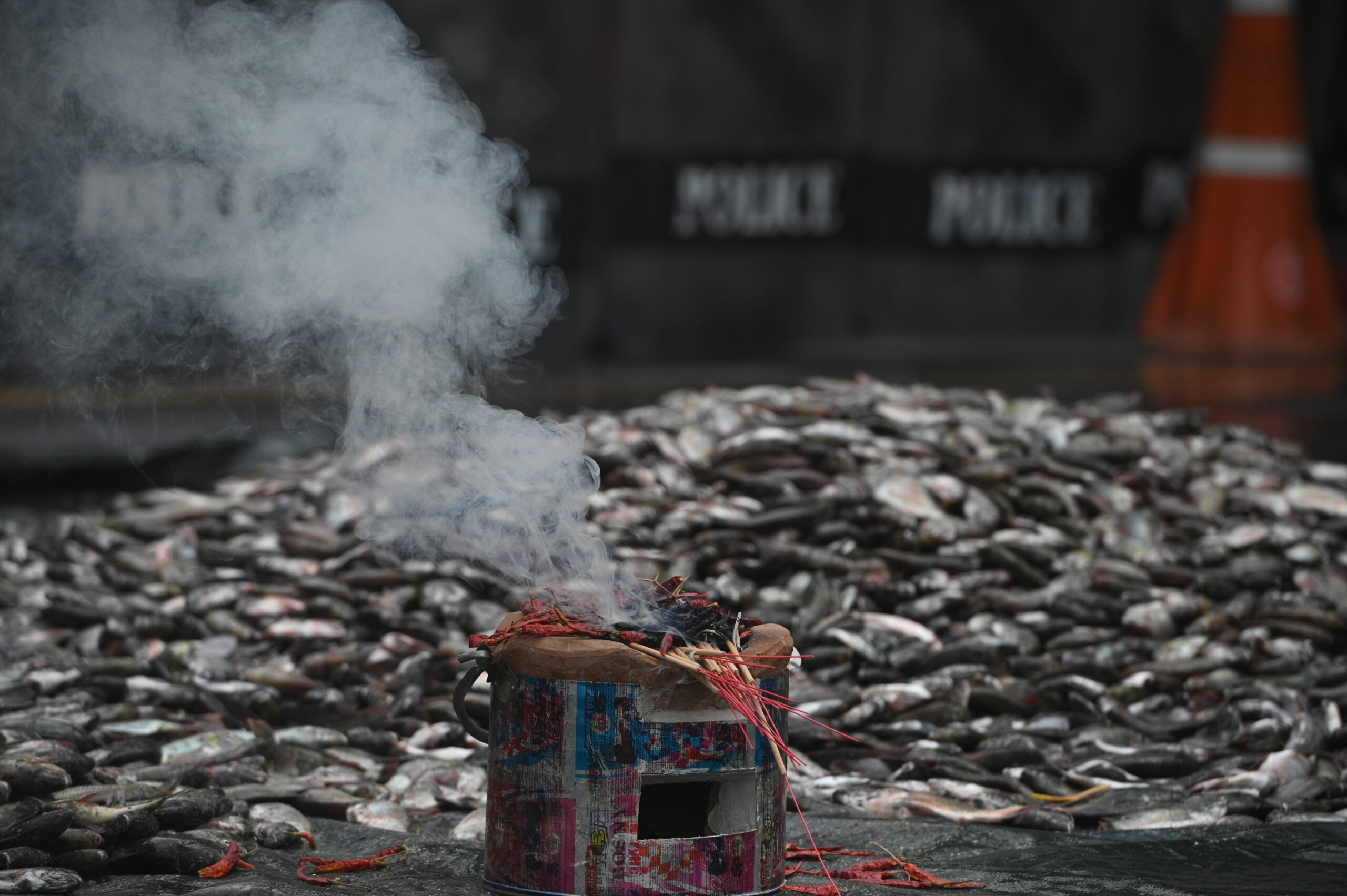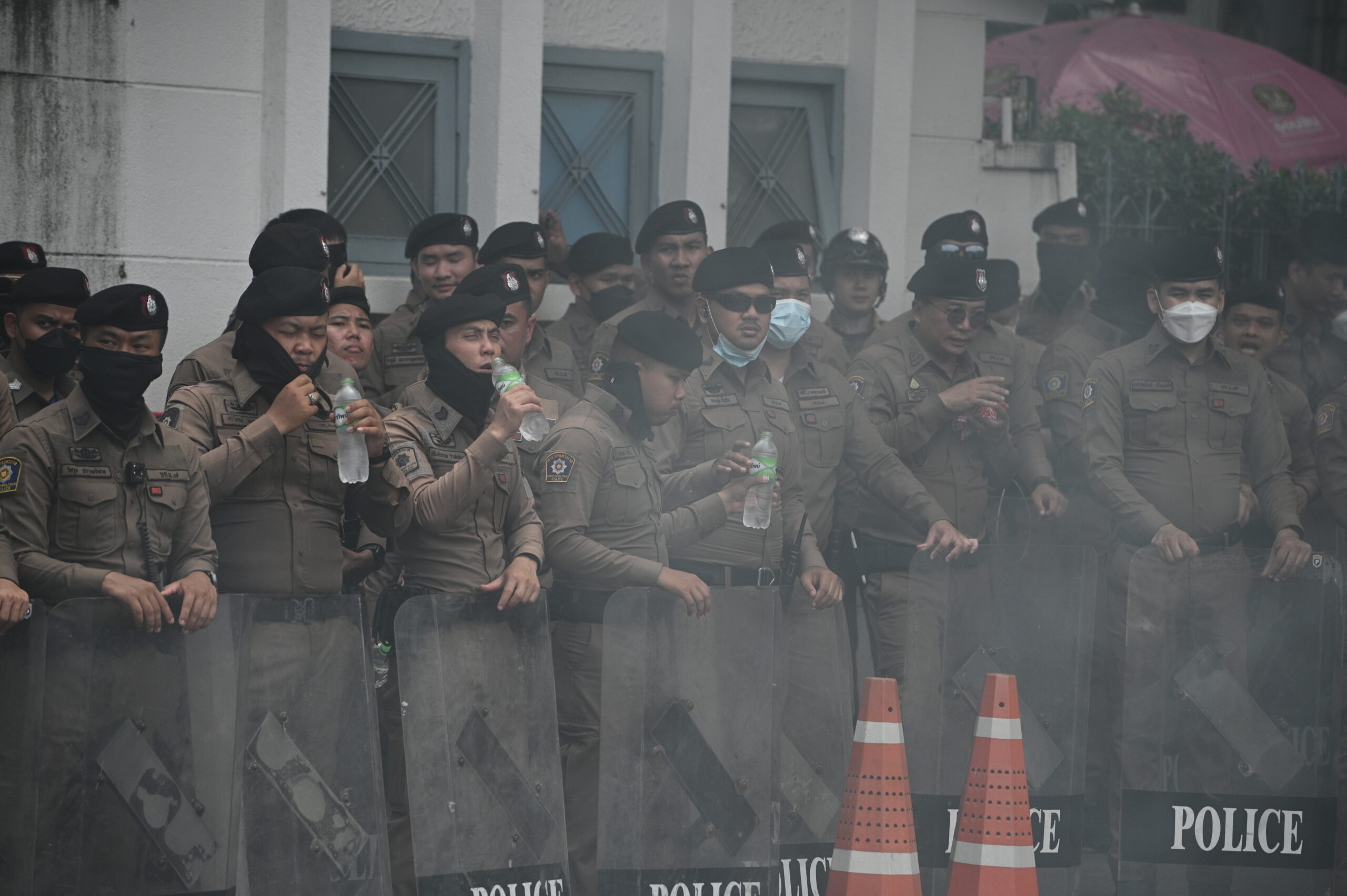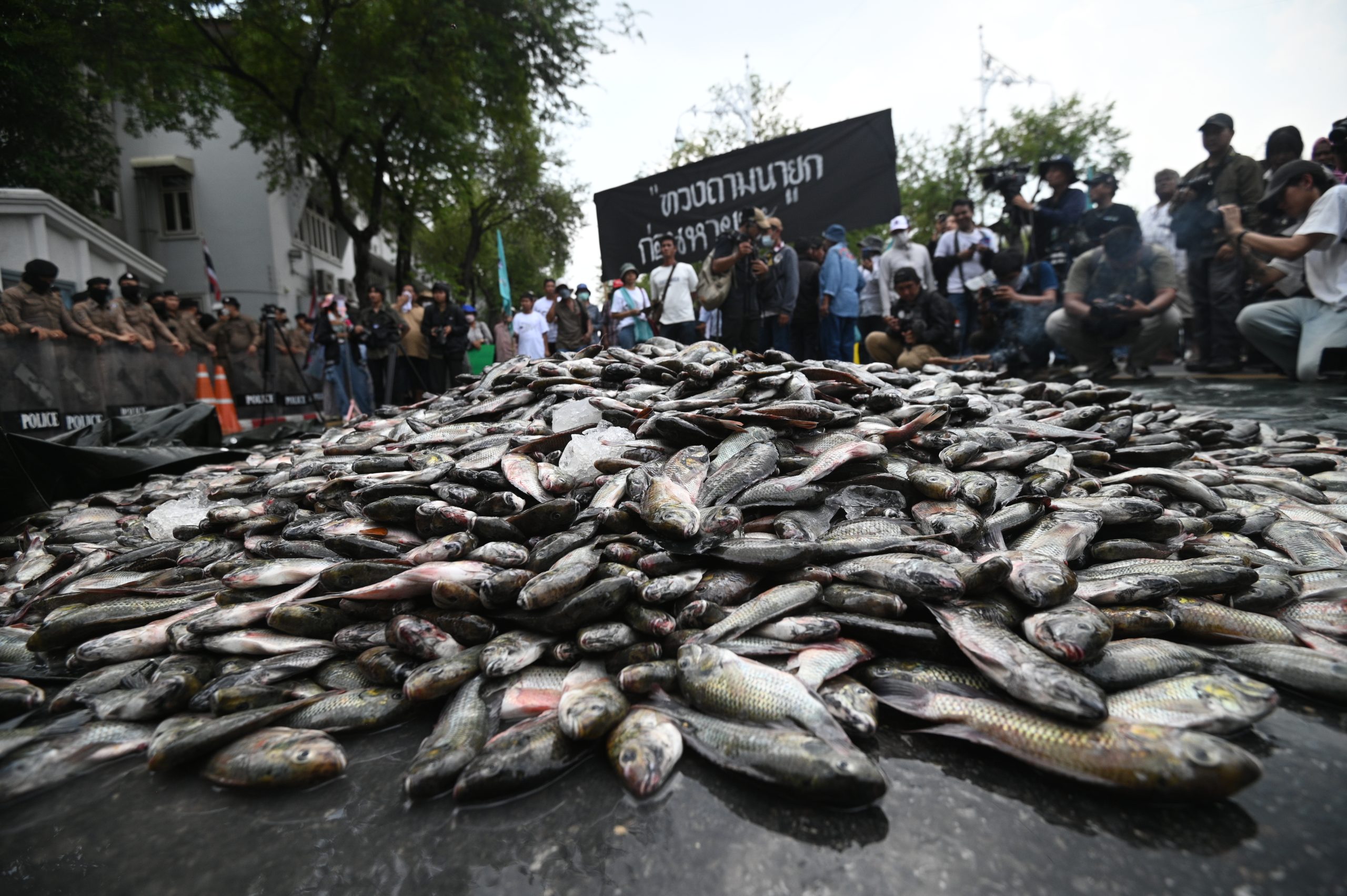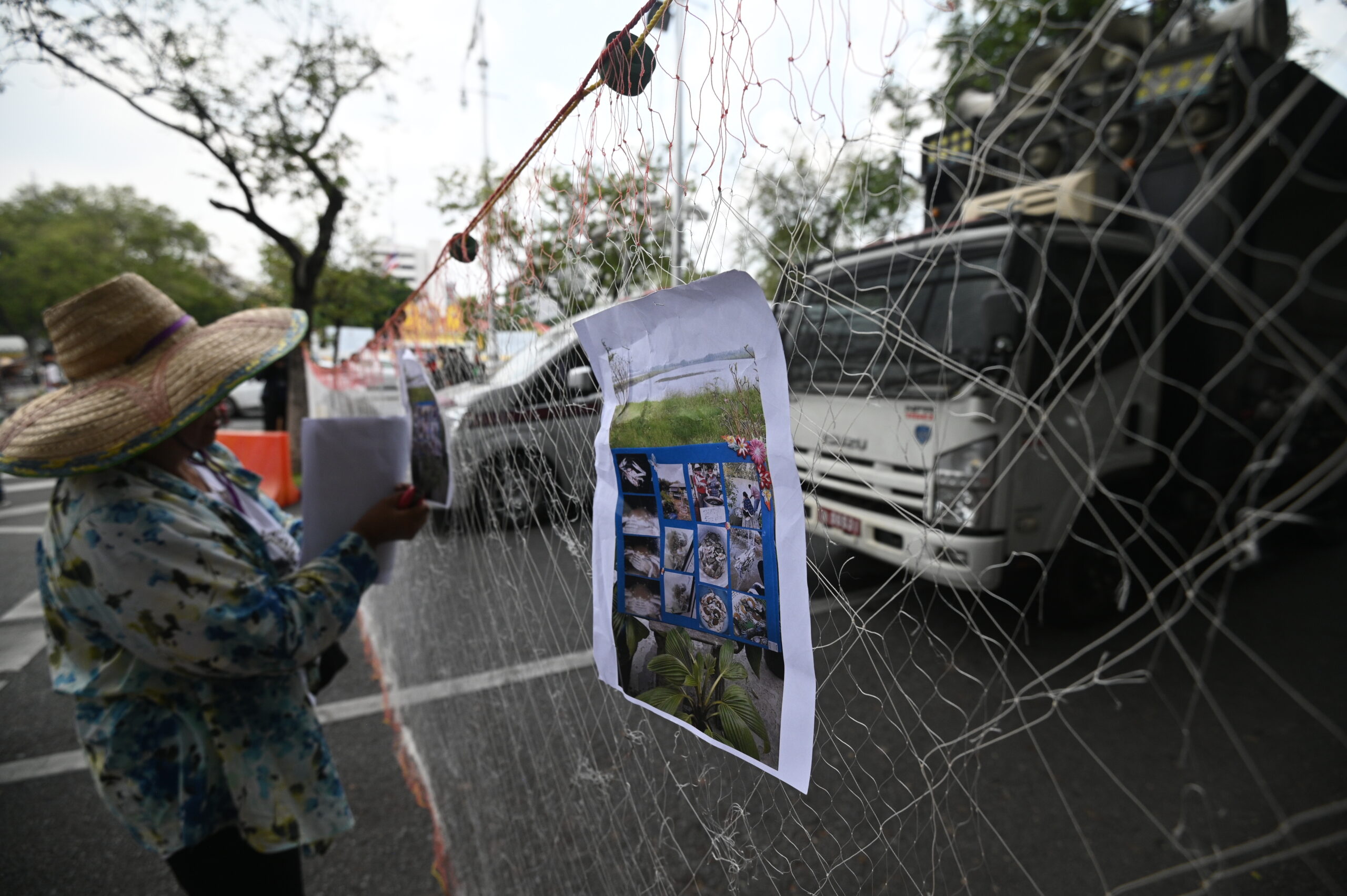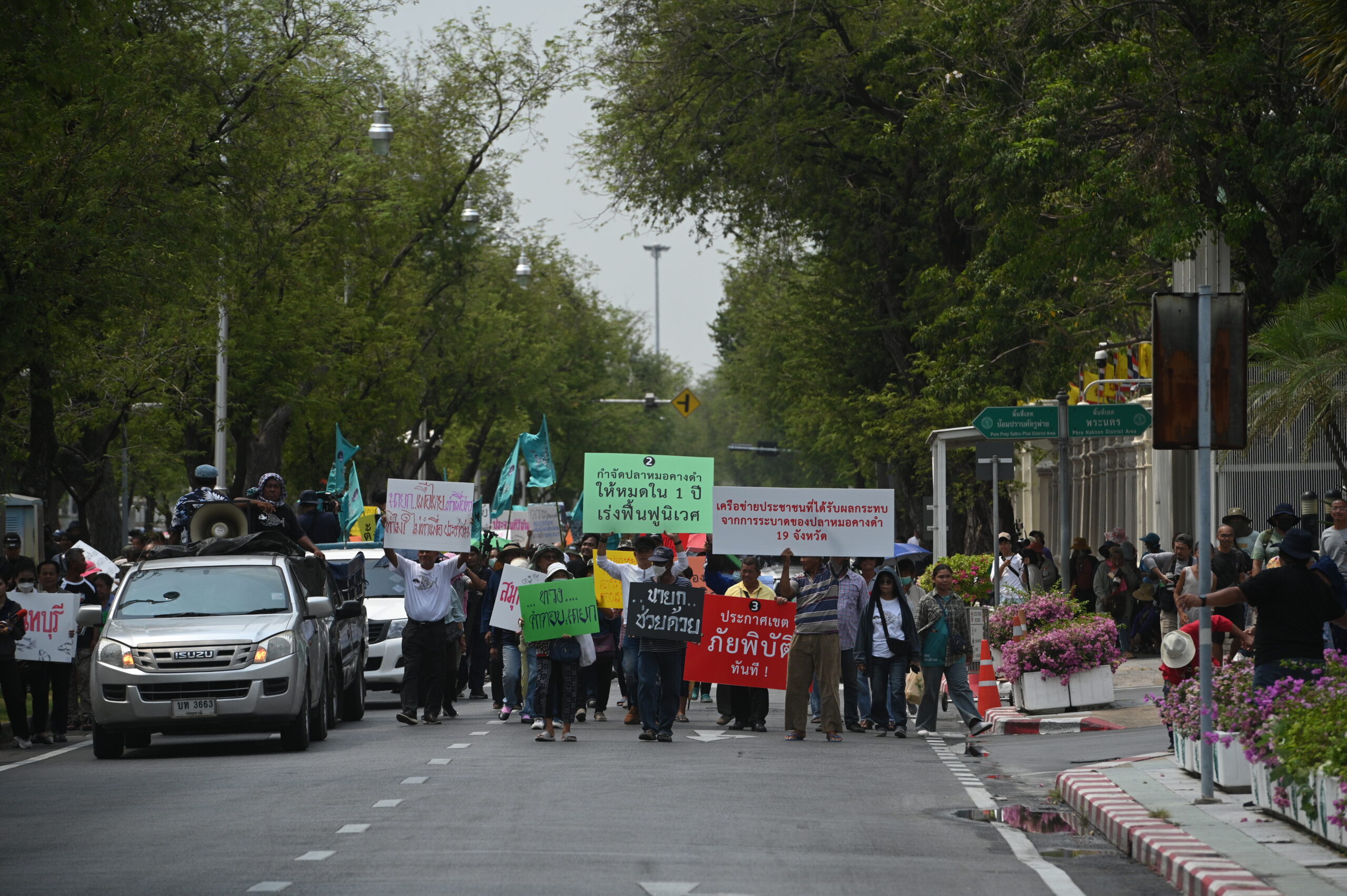She has spoken out to defend herself that her mind is always occupied and filled with people’s plights
The fishers and aquaculture farm owners from 19 provinces, which have been affected by the spread of Blackchin tilapia fish, an invasive species from Africa, sent hundreds of their representatives to Bangkok on Tuesday to demand the government, especially the PM herself, address and resolve the problem as the government remains silent to their last calls made in January. (Read: World’s leading CSOs join Bio Thai to pressure CPF accountable for Blackchin tilapia outbreak)
According to the group, they wanted the PM, Paetongtarn Shinawatra, to instruct her Cabinet to appoint an independent fact-finding committee to investigate and identify the culprits who caused the fish outbreak, with at least half of it being academics and independent experts nominated by the group. The investigation must be completed within 30 days, they demanded.
The group also asked the PM and her Cabinet to expedite compensation to fishers and those affected by the outbreaks of the fish to alleviate their suffering in the affected areas. The Fisheries Department has declared the fish outbreaks in 19 provinces. Declaration of disaster zones must be hastened to facilitate the process, they said.
Third, they asked the PM and her Cabinet to appoint committees at national and provincial levels to eradicate the fish and restore and rehabilitate the damaged ecosystems as well as their livelihoods within one year. Lastly, once the culprits are identified by the appointed committee, the PM and her Cabinet must assign concerned state agencies, Monre included, to take legal action against the culprits so they will be held responsible for the costs incurred in compensation and rehabilitation following the Polluter Pays Principle.
Upon their renewed calls, neither the PM nor her Cabinet members showed up to take their petition.
The government just sent Secretary-General of the Prime Minister for Political Affairs, Mr. Somkid Chuekong, to meet the group, who then decided to dump a few tonnes of Blackchin tilapia fish in front of Gate 5 of Government House before ending their activity.
It was later learned that the PM was in the Government House’s compound and received another group from the commercial fishing industry, which came to give her a bunch of flowers to thank the government for solving the IUU issue. She was also seen playing with her children in front of the lawn of the Thai Khu Fa building in the compound, prompting public criticism of her different reactions to the issues at hand.
PM Paetongtarn has spoken out, defending herself that she has already instructed the fishery department to resolve the issues for the fishers.
“Regardless of locations, the government will take care of every problem of the people. If we can rush to resolve them, we will do it, but if they take time and have to wait, we have to wait. There are no privileges or priorities taken over them.
“My mind is always occupied by people’s plights, and will rush to resolve them if I can,” said the PM, making an excuse that she hardly has time to meet her children and will try to spend time with them when she can.
Mr. Bancha Sukkaew, Director-General of the Fisheries Department, meanwhile, has elaborated to the public about the situation and the government’s efforts to address it.
He said the department has continuously solved the problem since the Srettha government. The task has been placed on a national agenda and there was an order to appoint a national committee to solve the problem of the Blackchin fish outbreak.
The committee has issued 7 measures as follows:
1. Controlling and eradicating the fish in all water sources where outbreaks are found
2. Eliminating the fish in natural water sources by continuously releasing predatory fish
3. Utilizing the fish that have been removed from the ecosystems
4. Surveying and monitoring the spread of the fish population in the “buffer areas”
5. Creating a body of knowledge, awareness, and participation in the eradication of the fish
6. Developing research and innovation to solve the problem
7. Restoring the ecosystems
So far, more than 35,000 tons of the fish have been removed from the ecosystems, he said, claiming, that the situation is under control and the outbreak is limited.
The department’s chief stressed the ongoing efforts to eradicate the fish from the contaminated water sources and the newly appointed panel is now drafting the regulation to facilitate the compensation for the affected fishers.
However, finding the culprits and taking legal action against them is now with the court. The department stands ready to take action following the court’s ruling, he said. (Read: Civil Court accepts lawsuit against CPF in Blackchin tilapia invasion case)
Indie • in-depth online news agency
to “bridge the gap” and “connect the dots” with critical and constructive minds on development and environmental policies in Thailand and the Mekong region; to deliver meaningful messages and create the big picture critical to public understanding and decision-making, thus truly being the public’s critical voice



